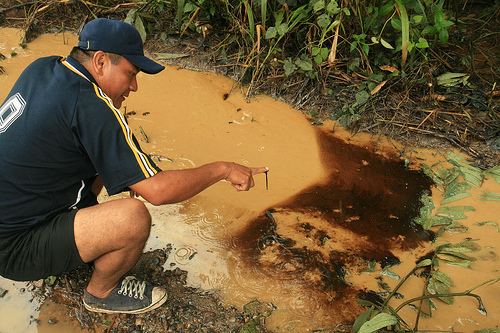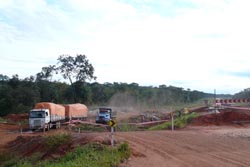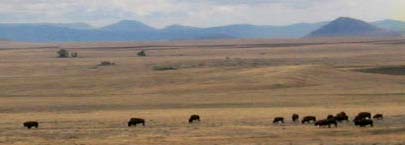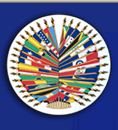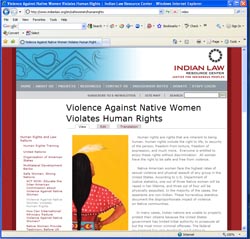| Reactions to the November 5th White House Tribal Nations Conference | ||
|
President Obama met with Indian leaders on November 5th, and promised the over 400 in attendance that he would make sure First Americans, along with all Americans, get the opportunities they deserve. "The first step should be a commitment by the Administration to respect and promote our most fundamental rights as Indian nations and individuals - something that the United States has refused to do up to now by refusing to endorse the United Nations Declaration on the Rights of Indigenous Peoples," says Lucy Simpson, a senior staff attorney with the Center. Listen to Lucy's full reaction to the White House Tribal Nations Conference. Joe Kennedy, chairman of the Timbisha Shoshone Tribe of the Western Shoshone Nation, who attended the meeting with the President also shares his thoughts. (More...) |
||
| Inter-American Commission on Human Rights hears about human rights abuses stemming from IIRSA | ||
|
Center attorney Leonardo Crippa, joined by Indian leaders from Peru, Bolivia and Brazil, testified earlier this week before the Inter-American Commission on Human Rights about a series of development initiatives in South America that is putting indigenous peoples at risk. Today, South American governments and multilateral development banks, such as the Inter-American Development Bank, are promoting the economic integration of all South America through a massive web of interconnected projects. (More...)
|
||
| Oil and gas development threatens environment at Fort Belknap | ||
|
The first natural gas ever produced on the Fort Belknap Indian Reservation flowed to market earlier this year, and more oil and gas development is on the horizon for this north-central Montana Indian community. While natural resource development could provide a much-needed boost to the local economy, if left unchecked it threatens to undo the decades of work the Assiniboine and Gros Ventre Tribes have invested in cleaning up their lands and waters that were destroyed by previous resource extraction. (More...)
|
||
| Dates set for further negotiations on the Draft American Declaration | ||
|
Negotiations on the draft American Declaration are scheduled to start up again in November. The negotiation meetings will be the first to take place since President Obama took office, leaving many indigenous rights supporters eager to see if and when the new administration will abolish the Bush-era refusals to participate in the Declaration negotiations. The Working Group charged with preparing the draft American Declaration on the Rights of Indigenous Peoples will resume negotiations on November 30 through Dec 2. The session, the Twelfth Meeting of Negotiations in the Quest for Points of Consensus, will be the first negotiations held since 2007, and the first of what will likely be two negotiation sessions that will take place before the General Assembly meets in Peru in June 2010.
|
||
| Now online: Using international advocacy to help end violence against Native Women | ||
|
The Indian Law Resource Center, in coordination with the NCAI Task Force on Violence Against Native Women, has launched a series of new web pages on how to use international advocacy to end violence against Native women.
Join our campaign to educate the Inter-American Commission on Human Rights. |
||
| Fellowship, Intern and Staff News | ||
|
FELLOWS AND INTERNS: The Center, committed to developing and encouraging new talent in the fields of Indian law and international human rights law, hosted seven extraordinary interns over the past year. Take a look at the women who made important contributions to our work to secure justice for indigenous peoples! (More...) APPLICATION DEADLINE: Applications to the Center's Fellowship program are being accepted through November 14. (More...) NEW STAFF: The Center is pleased to welcome three new staff members: Juanita Cabrera-Lopez, Barbara Anthony, and Ginny Underwood. (More...) |
||
Breadcrumb
- Home
- Issue 3 2009

